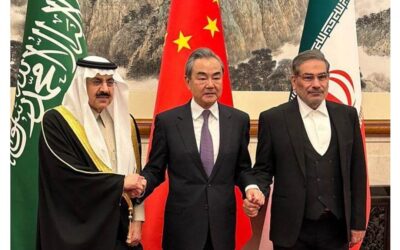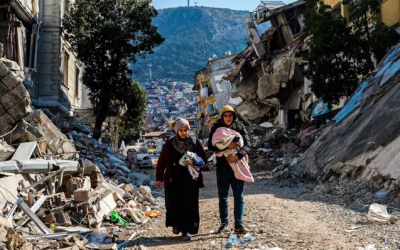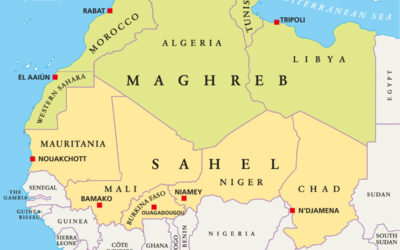On September 13, the State of the Union Speech (Soteu) was delivered by European Commission President Ursula Von Der Leyen as it is every year. The Soteu is the occasion to assess and present to the European Parliament the progress made by the Commission in a year of work, to outline the key priorities of the European Union and to set out the agenda for future work.
It was his fourth, and possibly, last speech before the end of the parliamentary term. With the coming elections in June, her re-election is uncertain: on the one hand, she has not spoken out on the matter, and on the other, the Commission has been facing challenges such as Frans Timmermans’ resignation from her position as Vice President for the Green Deal, who left to run for the Green-Left alliance.
The speech opened with praise for the work of the past four years, estimating that more than 90 per cent of the policy guidelines presented in 2019 have become concrete measures.
Von Der Leyen also discussed the many measures implemented in the Green Deal as a result of climate change. She did emphasize, however, that the European Green Deal will enter a new phase: a dialogue with industries, households, and farmers will be opened up to implement all the initiatives. Accordingly, he recalled the views expressed by Emmanuel Macron, who called for a ‘regulatory pause’ on green measures until all existing ones are implemented.
There was no lack of appreciation for the biodiversity present in Europe, referring to the law on the Restoration of Nature, whose approval was strongly desired by herself, a law that had created some divisions within the European People’s Party itself as some MEPs, led by group leader Manfred Weber, were obstructing its approval. In this sense, the President of the Commission took a step towards Weber and especially towards farmers, arguing that nature conservation and farmers’ rights must go hand in hand.
On the economic challenges ahead, she addressed three major issues. The first is of the importance of facilitating economic activities by cutting red tape and simplifying the overly complex administrative structures that a small to medium-sized enterprise cannot manage. The second relates to the ambition to give further impetus to the labour market, with the opening of a European social dialogue, by calling a new summit of social partners in Val Duchesse, together with the Belgian Presidency. The third is aimed at protecting the market from unfair competition on electric vehicles from China and, in this regard, announced the opening of an investigation into state subsidies distorting the market in Europe.
Another relevant topic at the Soteu was digital and artificial intelligence, of which Ursula Von Der Leyen, stressing its importance for improving the lives of all EU citizens, acknowledged the limits and shortcomings and for which she said she was ready to support the regulation on digital services and markets that serve to guarantee a secure digital space in which European citizens are protected.
On the geopolitical front, Von Der Leyen’s vision is to have close partnerships with legitimate governments and regional organisations, starting with the most troubled regions of Africa, where coups and poverty are the order of the day and where terrorism proliferates. He said that we must approach Africa with the same unity of purpose shown in Ukraine, to which Europe continues to give full support.
Finally, the speech focused on the possibility of ‘completing our Union’. She stated that the rule of law reports, to which all member states are subject, will also extend to the accession countries that are progressing faster and that EU membership will always continue to be based on merit and the commitment of states to undertake major reforms.



